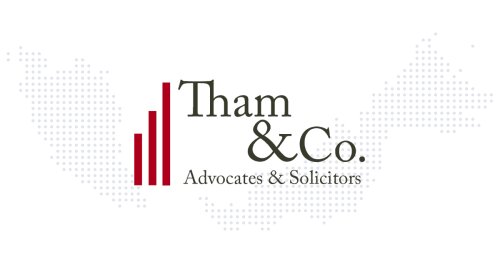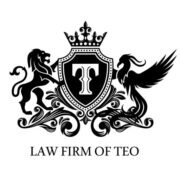Best Accounting & Auditing Lawyers in Malaysia
Share your needs with us, get contacted by law firms.
Free. Takes 2 min.
Or refine your search by selecting a city:
List of the best lawyers in Malaysia
About Accounting & Auditing Law in Malaysia
Accounting and auditing play vital roles in Malaysia's financial infrastructure, ensuring transparency and regulatory compliance in both the public and private sectors. The Malaysian accounting landscape is primarily governed by the Financial Reporting Act 1997, which established the Malaysian Accounting Standards Board (MASB). The objective is to develop a set of standards that are both comprehensive and in accordance with international practices, thereby enhancing the integrity of financial reporting. Auditing practices, on the other hand, are supervised by the Companies Commission of Malaysia (SSM) and the Malaysian Institute of Accountants (MIA), ensuring adherence to rigorous auditing standards.
Why You May Need a Lawyer
Legal assistance in the field of accounting and auditing can be crucial for several reasons. Businesses and individuals might require legal aid to navigate complex financial laws, ensure compliance with accounting standards, handle disputes with regulatory bodies, or during investigations of financial malpractice. Additionally, companies undergoing mergers or acquisitions, facing audits, or experiencing financial litigation might benefit from specialized legal assistance to safeguard their interests.
Local Laws Overview
In Malaysia, accounting and auditing standards are defined by several key legislations, including the Financial Reporting Act 1997 and the Companies Act 2016. The Malaysian Accounting Standards Board (MASB) issues the Malaysian Financial Reporting Standards (MFRS), which are aligned with the International Financial Reporting Standards (IFRS). For auditing, the MIA ensures compliance with the International Standards on Auditing (ISA). Key aspects include mandatory company audits, proper financial disclosure requirements, and stringent penalties for non-compliance or fraudulent reporting.
Frequently Asked Questions
1. What is the role of the Malaysian Institute of Accountants (MIA)?
The MIA regulates the practice of accountancy in Malaysia, ensuring that professional and ethical standards are upheld and facilitating the development of the accountancy profession.
2. Are audits mandatory for all companies in Malaysia?
Yes, under the Companies Act 2016, all companies incorporated in Malaysia are required to have their financial statements audited, unless specifically exempted under certain conditions for small companies.
3. What are the Malaysian Financial Reporting Standards (MFRS)?
The MFRS are a set of standardized accounting guidelines that companies in Malaysia must follow. They are largely in line with the International Financial Reporting Standards (IFRS).
4. How can a company ensure compliant financial reporting?
Companies should engage qualified accountants and audit professionals, regularly train staff on compliance issues, and utilize sound financial reporting systems to ensure they meet all regulatory requirements.
5. What is the penalty for non-compliance with accounting standards?
Penalties can range from fines to imprisonment, depending on the severity of the breach. Persistent non-compliance may also lead to reputational damage.
6. How are audit disputes typically resolved?
Audit disputes can be resolved through negotiation, mediation, or legal action. Seeking legal counsel at the onset of a dispute can help manage and resolve the conflict efficiently.
7. Can foreign companies use their home country’s accounting standards in Malaysia?
No, foreign companies operating in Malaysia are required to adhere to Malaysia’s local standards, specifically the MFRS or relevant guidelines as determined by the authorities.
8. Who oversees financial reporting compliance in Malaysia?
The Malaysian Accounting Standards Board (MASB), Companies Commission of Malaysia (SSM), and the Securities Commission Malaysia oversee financial reporting and ensure compliance with the established standards.
9. What role does the SSM play in auditing?
The SSM ensures compliance with the Companies Act 2016, maintaining a register of auditors and auditing firms, and taking action against violators of auditing standards.
10. How often should a company conduct internal audits?
This varies depending on company size and industry requirements. However, regular internal audits-often annually-can significantly aid in maintaining compliance and early detection of discrepancies.
Additional Resources
For those seeking additional guidance, several resources are available. The Malaysian Institute of Accountants (MIA) offers support and information on accounting practices. The Companies Commission of Malaysia (SSM) provides guidelines on company law and compliance requirements. Furthermore, engaging with professional audit firms and legal advisors specializing in financial law can provide crucial insights and assistance.
Next Steps
If you require legal assistance in accounting and auditing, consider consulting a lawyer who specializes in financial law. They can provide guidance on compliance issues, represent your interests in disputes, or advise you during audits and financial planning. Start by reaching out to local legal professional bodies or legal firms with expertise in this area, and prepare relevant documentation to facilitate a smooth legal consultation.
Lawzana helps you find the best lawyers and law firms in Malaysia through a curated and pre-screened list of qualified legal professionals. Our platform offers rankings and detailed profiles of attorneys and law firms, allowing you to compare based on practice areas, including Accounting & Auditing, experience, and client feedback.
Each profile includes a description of the firm's areas of practice, client reviews, team members and partners, year of establishment, spoken languages, office locations, contact information, social media presence, and any published articles or resources. Most firms on our platform speak English and are experienced in both local and international legal matters.
Get a quote from top-rated law firms in Malaysia — quickly, securely, and without unnecessary hassle.
Disclaimer:
The information provided on this page is for general informational purposes only and does not constitute legal advice. While we strive to ensure the accuracy and relevance of the content, legal information may change over time, and interpretations of the law can vary. You should always consult with a qualified legal professional for advice specific to your situation.
We disclaim all liability for actions taken or not taken based on the content of this page. If you believe any information is incorrect or outdated, please contact us, and we will review and update it where appropriate.
Browse accounting & auditing law firms by city in Malaysia
Refine your search by selecting a city.
















